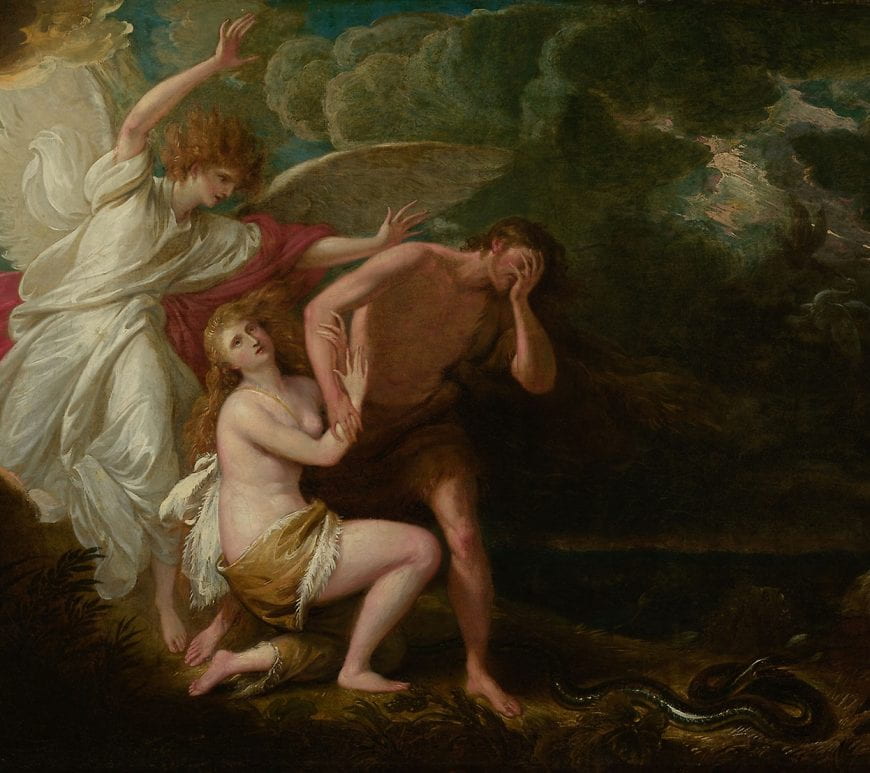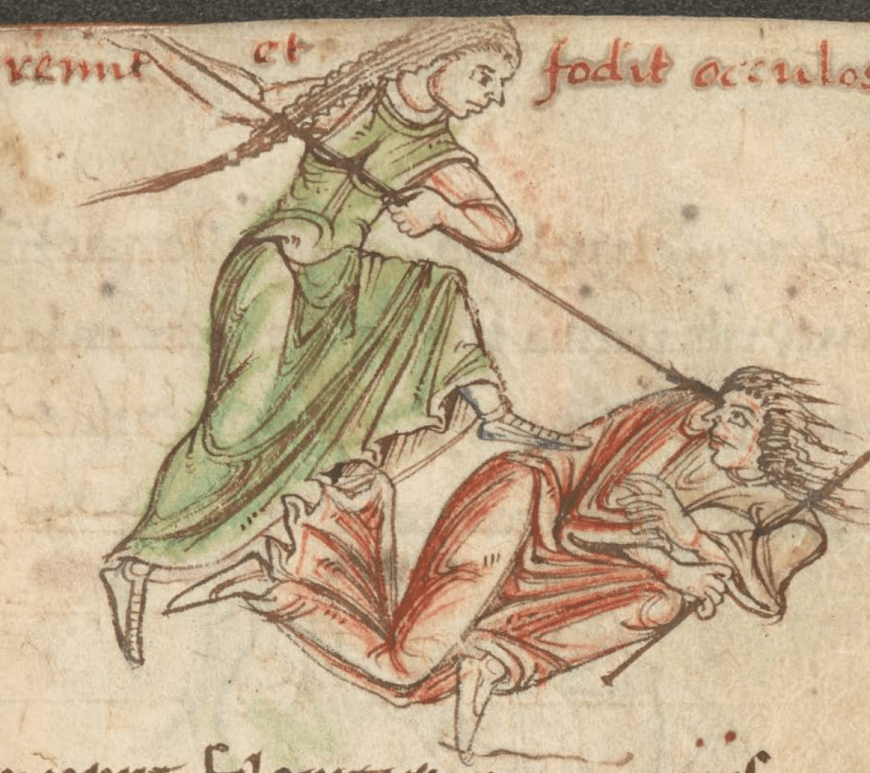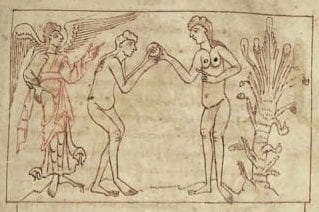Eating the Forbidden Fruit
Daniel Anlezark’s Old Testament Narratives explores the tale of Adam and Eve, but it allows for an inspection between the relationship of God and humans through the interesting dynamic of the Forbidden Fruit of Knowledge. At the beginning of Genesis B, God commands Adam and Eve to “renounce that tree, guard yourselves against the fruit. For you two there will be no unsatisfied desire” (19). And Adam and Eve continued…







